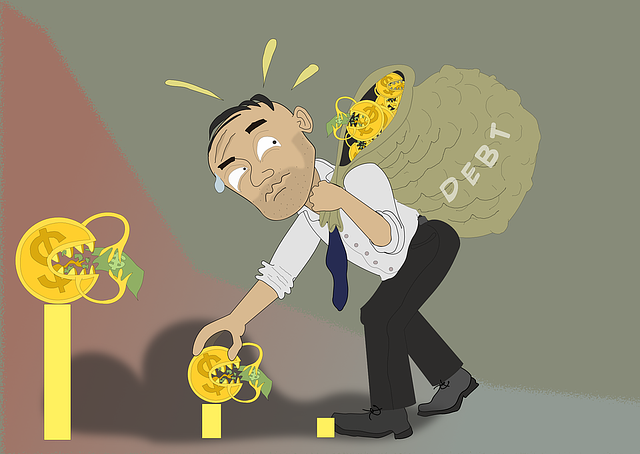Debt Consolidation Loans offer a strategic approach to managing multiple high-interest debts by merging them into one with potentially lower monthly payments. Secured loans, backed by assets like homes or cars, provide lower rates but carry the risk of asset loss in default; unsecured loans charge higher rates but offer more flexibility without collateral. Choosing between them depends on individual financial situations: secured for reduced rates with potential asset sacrifice or unsecured for higher rates with no tied-up assets. Informed decisions, aligned with debt relief goals and risk tolerance, are crucial.
“Confused between secured and unsecured loans? This guide deciphers the key differences for informed financial decisions. Secured loans, backed by collateral, offer lower rates but strict conditions. Unsecured loans, lacking collateral, are more accessible but come with higher interest rates and potential credit checks. Explore these options for debt consolidation, considering your creditworthiness and financial goals. Make an empowered choice that aligns with your needs.”
Understanding Secured Loans: How They Work and Their Benefits
Secured loans are a type of financing where the borrower offers an asset as collateral to secure the loan. This could be a house, car, investment portfolio, or even savings account. The lender uses this collateral to mitigate risk, which often results in lower interest rates and more favorable loan terms for the borrower. One common use case is debt consolidation loans—a secured loan used to pay off multiple high-interest debts, simplifying repayment and potentially saving money on interest payments.
The benefits of secured loans include increased borrowing power since the collateral acts as a guarantee for the lender. In times of financial distress, the lender has legal recourse to seize and liquidate the collateral to recover the outstanding debt. This structure makes secured loans an attractive option for individuals looking to manage their debt more effectively while potentially enjoying better interest rates and repayment conditions.
Unsecured Loans: Key Features and Potential Drawbacks
Unsecured loans, as the name suggests, do not require any collateral or asset as security. This means that lenders take on a higher risk since they have no guarantee to seize and sell an asset if you fail to repay. As such, unsecured loans often come with higher interest rates compared to secured options. These loans can be ideal for those looking for flexibility in terms of both repayment and borrowing amount. They are suitable for various purposes, including debt consolidation loans, allowing borrowers to combine multiple debts into a single loan with potentially lower monthly payments.
While unsecured loans offer convenience and accessibility, they may not be the best choice for everyone. The absence of collateral can result in stricter lending criteria, limited borrowing amounts, and shorter repayment periods. Additionally, late payments or defaulting on these loans can significantly impact credit scores, making future borrowing more challenging and expensive.
Debt Consolidation with Secured vs Unsecured Loans: Making an Informed Choice
When considering debt consolidation loans, understanding the differences between secured and unsecured options is crucial. Secured loans are backed by collateral, typically your home or vehicle. If you fail to repay, the lender can seize this asset. This makes secured Debt Consolidation Loans often offering lower interest rates as the risk for the lender is reduced. Unsecured loans, on the other hand, don’t require collateral, which means there’s no immediate risk of asset forfeiture if repayments are missed. However, lenders compensate for this increased risk by charging higher interest rates.
The choice between secured and unsecured debt consolidation depends on your financial situation. Secured loans provide access to lower rates but come with the potential loss of a significant asset. Unsecured loans offer greater flexibility as they don’t tie up an asset, but at the cost of potentially higher interest expenses. Weighing these factors allows you to make an informed decision aligned with your debt relief goals and risk tolerance.
When considering debt consolidation loans, understanding the distinctions between secured and unsecured options is paramount. Secured loans, backed by collateral, offer lower interest rates and flexible terms but carry the risk of asset forfeiture. Unsecured loans, free from collateral requirements, provide convenience and faster approval times yet come with higher interest rates and potential credit impact. For effective debt consolidation, evaluating these differences and choosing the suitable loan type based on personal financial situations is essential for achieving long-term financial health.
